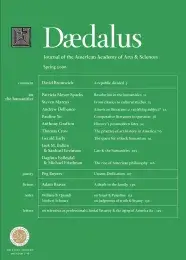American philosophy in the twentieth century
In 1900, Europe was the philosophical center of the world, as it was the center for science and scholarship in all fields. America was a province–in philosophy there were few teachers and few students. It was to Europe one went for advanced study of philosophy, and some of the main American philosophers, such as William James, eagerly did so. However, some influence had begun to flow in the opposite direction as well. James’s Principles of Psychology (1890) was widely studied in Europe and was a major influence on the young Edmund Husserl when he started to develop phenomenology. Charles Sanders Peirce’s logical work also became well-known in Europe, primarily because of the attention Ernst Schroeder gave it in his important Vorlesungen ueber die Algebra der Logik (1890–1905).
Now, one hundred years later, the situation has changed dramatically. America has more philosophers and more philosophy students than do all the countries in Europe combined. But mere numbers are no good indication of quality. Two better indicators are where students go and where one prefers to publish. Students from Europe and the rest of the world now go to America to do their graduate work. The American Ph.D. programs are known to give a broad and thorough education in philosophy, with great stress on written work. Unlike their European counterparts, American students hand in written work several times a term and receive detailed comments from their teachers. European universities are too understaffed to give similar attention and feedback to their students, and they often lack teaching staff in subfields that in America are required for accreditation. Not only in philosophy, but in all disciplines, the American system of graduate education is one of the main factors in explaining America’s increasing dominance in science and scholarship.
That students go to America to study philosophy, however, may attest more to the quality of American higher education than to the quality of American philosophy. Another indicator of quality, though, is that one has to read English in order to have access to the best scholarly contributions and write English in order to be read by the best scholars. English has taken over as the main language of scholarship, in philosophy as in other fields. That English has replaced German and French as the primary language of science and scholarship reflects, it seems, a corresponding move of most of the research activity.
What happened in the twentieth century that transformed America from a province to a center for philosophy?
. . .
